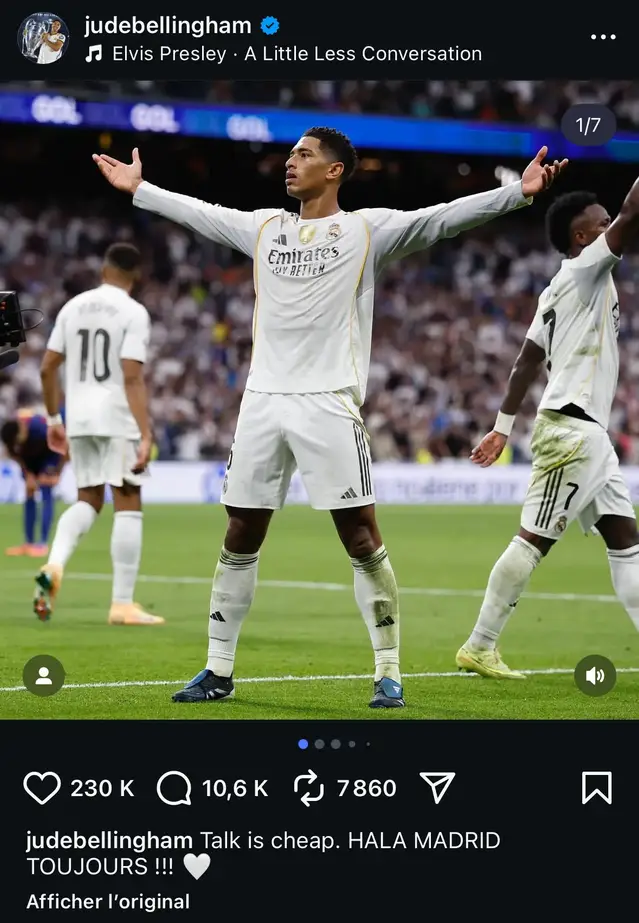Sport
The Offside Trap and VAR: Why Mbappé’s Disallowed Goal Exposes Football’s Deepest Divide- My Opinion

The Offside Trap and VAR: Why Mbappé’s Disallowed Goal Exposes Football’s Deepest Divide
When Kylian Mbappé’s stunning strike against Barcelona was ruled out for being offside by a few millimeters, the Santiago Bernabéu went from jubilation to fury in seconds. What should have been remembered as a masterpiece of athletic precision instead became another flashpoint in football’s ongoing war between technology and human judgment.
The incident, now etched into Clasico history, was more than just a decision — it was a mirror reflecting the modern game’s growing identity crisis. The question isn’t whether VAR was right or wrong, but whether the sport itself is being reshaped by an obsession with microscopic accuracy at the expense of human emotion.
Below, I explore both sides of the argument — why the decision can be defended, and why VAR, in its current form, must be re-examined.
Why the VAR Decision Was Justified
- Consistency Is Key to Fairness
Laws must apply equally to all. The offside rule doesn’t bend for brilliance, and VAR enforces that consistency. A goal is either onside or offside — even by a single frame — and that objectivity protects the game’s credibility. - Technology Corrects Human Limitations
Before VAR, countless matches were decided by errors that fans still argue about years later. VAR eliminates much of that human imperfection, ensuring that major decisions are backed by evidence rather than instinct. - Protecting the Integrity of Results
Each goal has enormous implications — financially, competitively, and emotionally. Allowing even a marginally offside goal could tilt a match unfairly. VAR ensures that every result stands on solid ground. - Encouraging Tactical Precision
The awareness that VAR will catch even slight positioning errors pushes attackers to refine their timing. It rewards discipline, movement intelligence, and precision — qualities that elevate the game. - Transparency for Players and Fans
With replays, lines, and slow-motion reviews, the audience now sees exactly what referees see. That visibility creates a sense of accountability that traditional officiating could never fully guarantee.
Why VAR Must Be Reviewed
- It’s Stripping Away Football’s Emotion
The delay between goal and celebration has become unbearable. Players hesitate to celebrate; fans hold their breath. The pure joy of the sport is being replaced by cautious anticipation. - Decisions Feel Mechanical, Not Human
Football was never meant to be governed by geometry. When a striker’s shoulder is penalized by a frozen frame, the decision might be accurate — but it feels wrong. The human eye never saw it that way. - Technology Has Its Own Margin of Error
The cameras and frame rates used in VAR reviews aren’t flawless. A difference of a few milliseconds between the pass and the freeze-frame can change an entire verdict, meaning “precision” isn’t always precise. - Match Flow Is Constantly Interrupted
The constant pauses for checks and line drawings drain the energy from the game. Momentum — that invisible rhythm that defines great football — is often lost in the technical waiting. - It Undermines the Spirit of the Game
Football’s soul has always lived in its unpredictability, in the human moments of imperfection that spark debate. When technology begins to dominate over common sense, the game risks losing what makes it beautiful.
Conclusion: A Call for Balance
VAR was introduced to make football fairer, not colder. The Mbappé decision shows that while the system works by the letter of the law, it often fails in spirit. Football thrives on emotion — on the chaos, the passion, and the shared humanity between players and fans.
Perhaps it’s time for football’s lawmakers to revisit Arsène Wenger’s long-advocated offside reform — one where an attacker is only offside if their entire body is beyond the last defender. Such a change could restore the balance between accuracy and artistry, between justice and joy.
Because in the end, football isn’t meant to be perfect — it’s meant to be alive.

 Sport11 months ago
Sport11 months ago“I’m not trying to criticize Ancelotti, but I’m not happy with him for benching that player”: Bellingham Expresses Frustration Over Ancelotti’s Tactical Decision

 Sport12 months ago
Sport12 months agoBREAKING: Manchester City vs Liverpool Clash Cancelled! Title Race Takes a Twist

 Sport11 months ago
Sport11 months agoArsenal Poised for January Swoop on €70 Million Star Dusan Vlahovic

 Sport11 months ago
Sport11 months agoWHAT ON GOD’S GREEN EARTH DID WE JUST SEE?!

 Sport11 months ago
Sport11 months agoReal Madrid: Carlo Ancelotti’s Surprising Revelations About an Unexpected Quality of Vinicius

 Sport11 months ago
Sport11 months agoBREAKING: Arsenal’s Champions League Quarterfinal Opponent Revealed After Monaco’s Dramatic Win – Tough Challenges Await Arteta’s Men

 Sport11 months ago
Sport11 months agoChelsea Players Facing Suspension as Yellow Cards Mount

 Sport11 months ago
Sport11 months agoKey Arsenal Player Set for Return as Gunners Face Struggling Everton
















